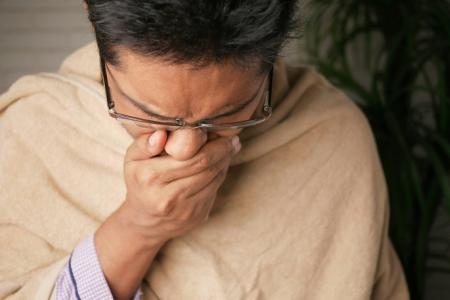What is influenza and how can it turn deadly?
Although influenza – better known as flu – is a common illness that most people recover from without treatment, it can result in life-threatening or even deadly complications.
On Feb 3, news broke that Taiwanese star Barbie Hsu had died, after she caught influenza-related pneumonia during a holiday in Japan.
The 48-year-old actress was best known for her role in the 2001 drama Meteor Garden.
Here are some things to know about influenza viruses, symptoms and potential complications, and how you can protect yourself from them.
What are the different types of influenza virus?
Influenza is a respiratory illness caused by influenza viruses. It is unlike a cold that is caused by viruses that attack the nose and throat, which can lead to inflammation and cause a blocked or runny nose, sneezing, watery eyes, sore throat and a cough.
According to the World Health Organisation (WHO), there are around one billion cases of seasonal influenza each year, with three to five million cases being classified as severe.
There are four types of influenza viruses: types A, B, C and D.
The Ministry of Health’s (MOH) website states that the most common influenza viruses that spread in Singapore and globally are Influenza A (H1N1-2009), Influenza A (H3N2) and Influenza B.
Only Influenza A viruses have been known to cause pandemics, said WHO, while Influenza C viruses are not commonly detected and usually cause mild infections.
Influenza D viruses mainly affect cattle and are not known to spread to humans.
What are the symptoms of influenza?
According to MOH, a person who has contracted influenza might have the following symptoms:
- Fever
- Chills
- Headache
- Cough
- Sore throat
- Muscle pain
- Fatigue
- Gastrointestinal symptoms, such as nausea, vomiting and diarrhoea
How does influenza spread?
Influenza can spread easily, and even more rapidly in crowded areas such as schools and nursing homes, according to WHO.
It can be spread through respiratory droplets dispersed into the air – such as when an infected person coughs and sneezes – or when someone touches his nose or mouth after touching a contaminated surface.
The incubation period, which refers to the time between infection and illness, can last between one and four days.
Infected people can be contagious one day before symptoms start to show, until five days to a week after symptoms surface.
What are the potential complications of influenza, and who is at higher risk?
Though most people can recover from influenza symptoms within a week without the need for medical attention, influenza can cause severe illness or death. It can also worsen the symptoms of other chronic diseases, according to WHO.
In severe cases, influenza can lead to pneumonia and sepsis. People with other medical issues, or those who have severe symptoms should seek medical care, WHO advised.
According to MOH, the following groups are at a higher risk of experiencing complications:
- People aged 65 and older
- Children aged between six months and under five years
- People with chronic pulmonary or cardiovascular disorders
- People who require regular medical follow-up or hospitalisation due to chronic metabolic diseases, renal, neurologic, hepatic, or haematologic disorders
- People with immunosuppression (a weakened immune system)
- Children and youth aged between six months and 18 years who are receiving long-term aspirin therapy, and might be at risk for developing Reye’s syndrome – a serious condition that causes swelling in the liver and brain – after an influenza infection
- Pregnant women
What are some treatment methods, and how do I protect myself against influenza?
Acute symptoms of influenza can usually be treated with adequate bed rest, drinking plenty of fluids, and antipyretics and antihistamines, according to MOH.
Doctors might also prescribe antiviral medication to reduce the severity and duration of symptoms, and promote recovery.
The WHO and MOH recommend getting vaccinated to protect oneself against influenza.
This is especially so for people at risk of developing complications, said MOH. People living with and caring for high-risk individuals are also encouraged to be vaccinated.
To prevent contracting influenza, people should practise good habits such as:
- Washing your hands with soap
- Covering your mouth and nose when coughing or sneezing
- Disposing of used tissues in the bin
- Wearing a mask and seeking medical attention when unwell
- Avoiding close contact with sick people
- Avoiding sharing of food, drinks, or eating utensils
Get The New Paper on your phone with the free TNP app. Download from the Apple App Store or Google Play Store now


